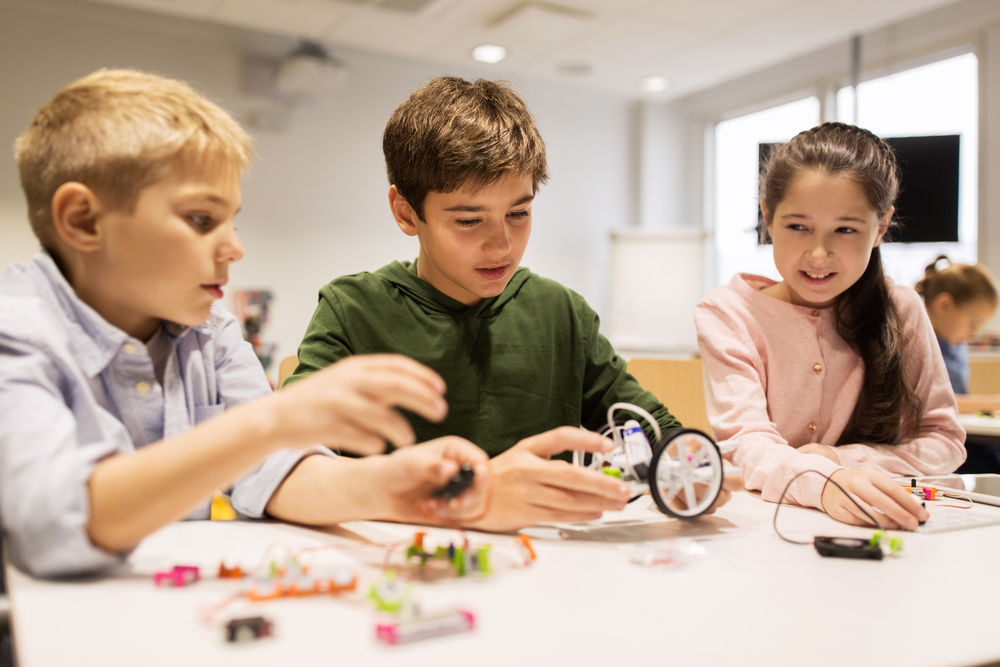Problem-solving practice Normal Math Worksheets for Ages 6-8
4 filtered results
-
From - To
Discover our engaging Problem-Solving Practice Normal Math Worksheets designed specifically for children ages 6-8. These interactive resources provide young learners with the opportunity to tackle real-life math scenarios, enhancing their critical thinking and analytical skills. Each worksheet features age-appropriate problems that stimulate curiosity and foster a love for learning. Our materials encourage self-paced exploration and help reinforce fundamental math concepts in enjoyable ways. Perfect for classroom use or at-home learning, these worksheets offer a valuable tool for parents and teachers alike to support young mathematicians as they develop essential problem-solving abilities. Empower your child's math journey with our thoughtfully crafted worksheets!
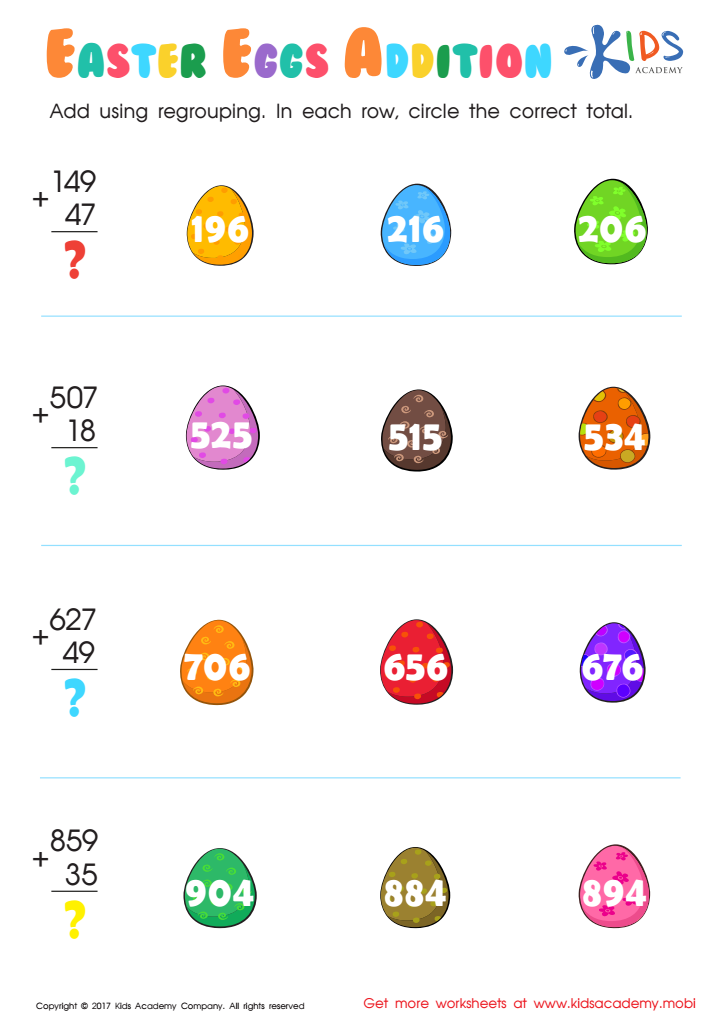

Addition with Regrouping Worksheet
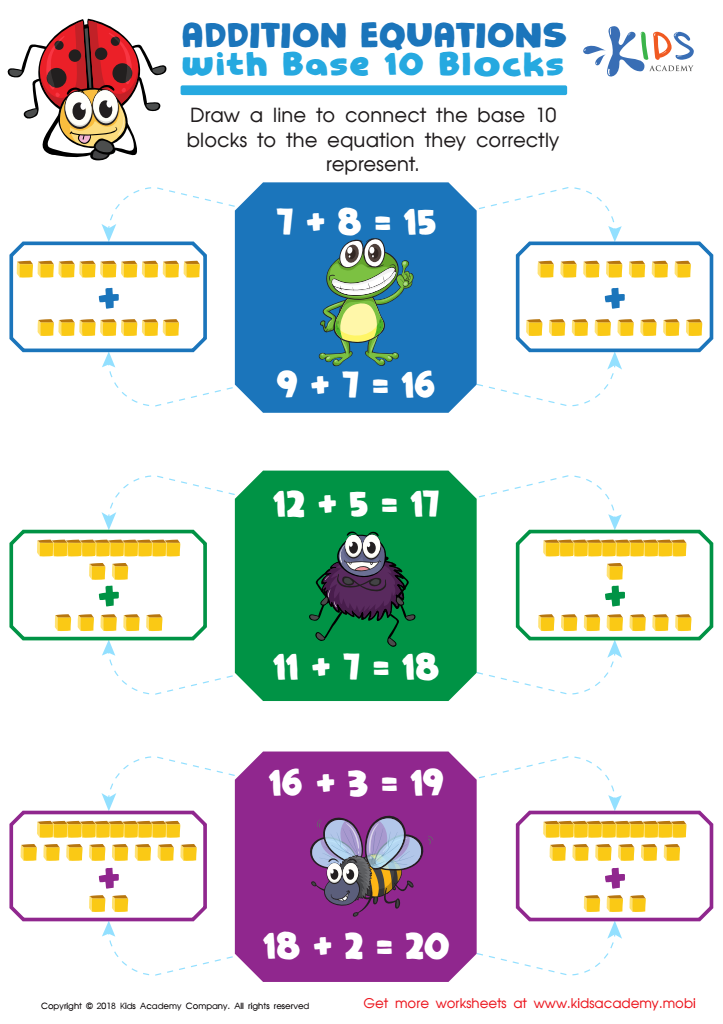

Addition Equations With Base 10 Blocks Worksheet
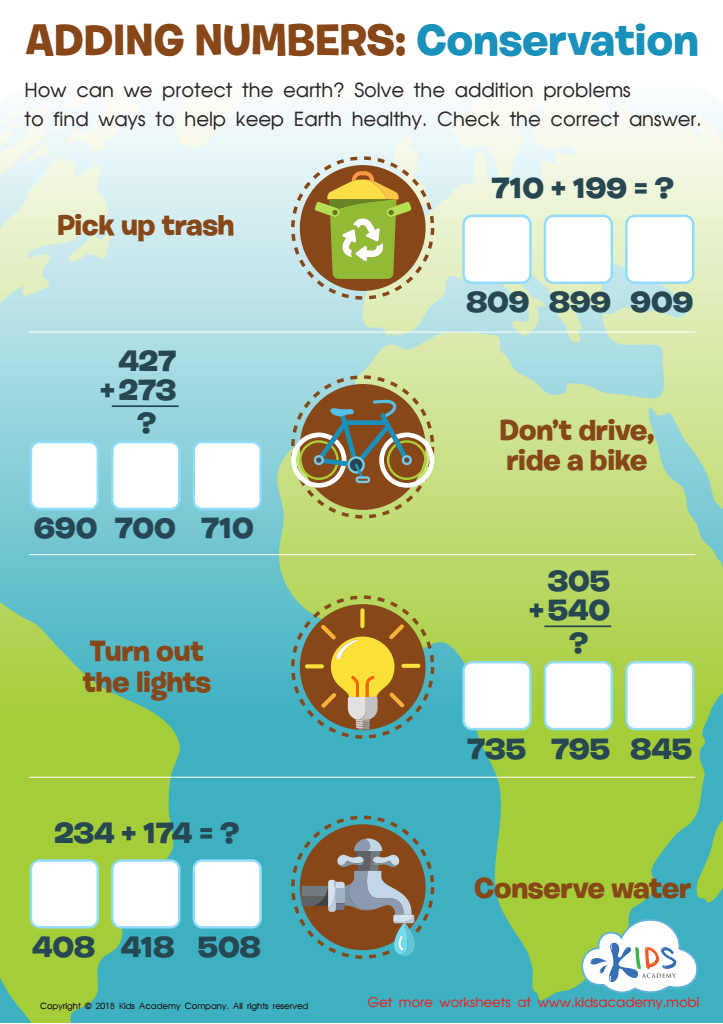

Adding Numbers: Conservation Worksheet
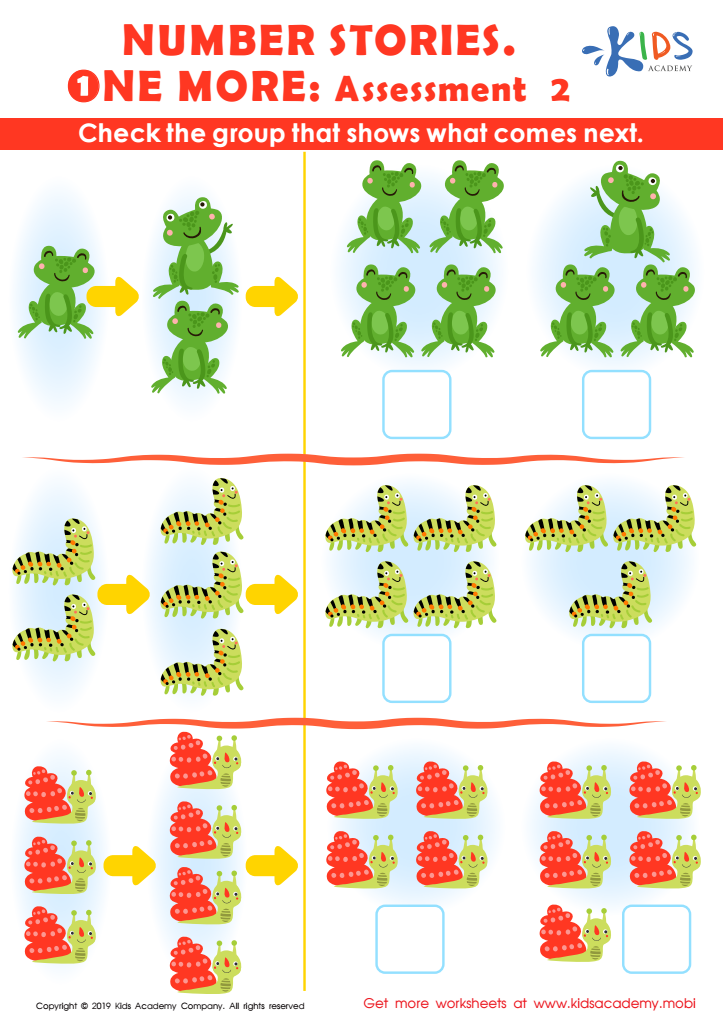

Number Stories One More – Assessment 2 Worksheet
Parents and teachers should prioritize problem-solving practice in Normal Math for ages 6-8 because it fosters critical skills essential for lifelong learning. At this age, children are at a developmental stage where they begin to think more abstractly and understand complex concepts, making it an ideal time to introduce problem-solving exercises. These activities encourage logical reasoning, promote creativity, and enhance analytical skills, helping young learners approach challenges with confidence.
Problem-solving also strengthens a child's resilience and perseverance, teaching them that difficult tasks can be tackled through strategic thinking and practice. Additionally, it stimulates higher-level thinking, enhancing not only math proficiency but also cognitive development in areas such as reading and science.
Engagement in problem-solving activities fosters collaboration and communication among peers, allowing children to share different approaches and learn from one another. This active participation promotes a deeper understanding of mathematical concepts beyond rote memorization.
Moreover, fostering these skills early can contribute to a positive attitude towards math, reducing anxiety and building self-efficacy for future math-related endeavors. Therefore, both parents and teachers play a vital role in nurturing these skills, ensuring children develop a strong foundation to thrive academically and personally.
 Assign to My Students
Assign to My Students




